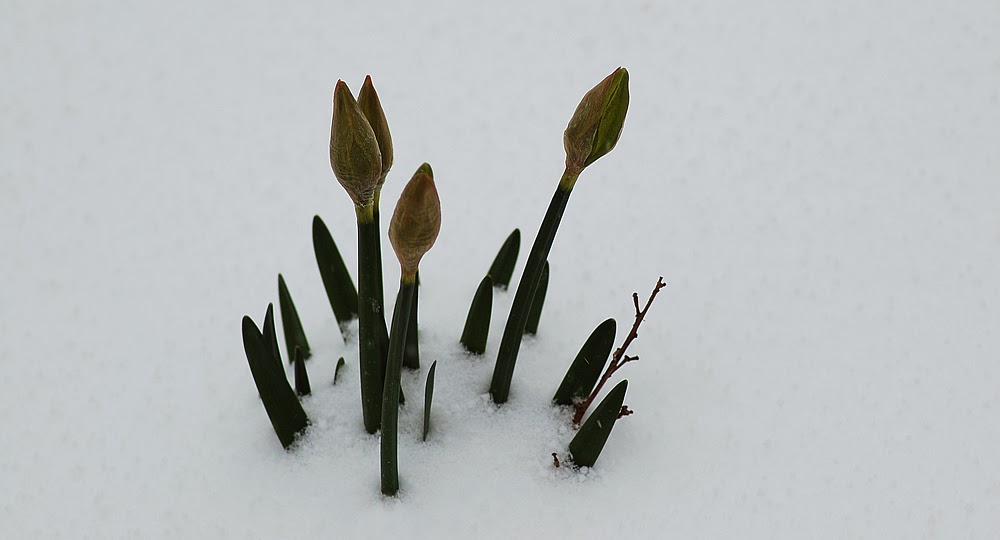My
response to those questions lately is that I believe there is one God
that is so powerful and so mysterious that surely these things would
be within God's power. But, personally, destiny is not an important
part of my beliefs. Being present and accountable for my actions is
what counts, not any reward later. I do not feel I am owed some
special future in this life or the next, if there is a next life. My
beliefs compel me to behave for goodness' own sake.
One way
I can do this is to live simply. As a Quaker I have been taught what
we call the “Testimony of Simplicity”. That is we should live
frugally with an intentional sense of our impact on the world around
us. We should not allow ourselves to be overburdened by material
possessions and complicated relationships. By keeping our way of life
simple we allow more room for Spirit in our lives. More importantly
we make more room for that of the Spirit in anyone we meet in our lives.
But this
is a most difficult approach to life. There is nothing simple about
it. Not only does God have to juggle a myriad of variables, so do we.
This is both the blessing and the curse of modern life. But we have been
given the great gift of history, of all that has happened before.
Once human kind comes to know something it cannot be unknown. No
matter how hard we try to return to a purer way of life before the
corruption of newfangled things, we cannot unring a bell. All human
experience becomes part of our spiritual DNA.
Spiritual
DNA is made up of three main components. First is our physical DNA:
all those markers that make up our physical body, our complexion, our
body type, and so on. The second part is our heritage: our life
experiences, our cultural and family upbringing. The third is
spiritual. This is not quantifiable. It is the culmination of all the
rest and it is none of it. Why does one person receive the physical
DNA for beauty or good health? What makes one person whither under
life's challenges and another thrive? What gives one sibling a bright
and sunny outlook on life and another a deep unyielding pessimism?
Spiritual DNA is more than luck.
Spiritual
DNA is synchronicity. There are mysterious events in our lives which
we cannot explain and which seem to affirm something important that
we believe. Many people will call this simple coincidence and they
may be in fact correct. But when we experience synchronicity it is
because an event has meaning beyond the coincidence.
For example, a
couple of years ago I was walking on beach near my home, picking up
seashells. Among other treasures I found were three flat stones. When
I laid out the morning's finds I noticed that the stones seemed to
belong together. They looked as if they had been made to be together.
Since then they have sat united on my desk. They have served as
helpful symbols of many things for me. And they seem to have a
meaning that changes.
At one
workshop I attended we were talking about stone masonry as a metaphor
for faith community. The teacher reminded us that masons building a
wall from field stones do not need mortar to bind them. Through trial
and error they fit the stones together creating structures that
survive the elements for long periods of time. The teacher suggested
that this was good way to think of the Religious Society of Friends
which had developed practices that have unified us and made us
spiritually strong. I remembered my three companion stones which in
turn reminded me of three main components of a Quaker faith
community: corporate worship, care for each other, and witnessing
truth as we have experienced it.
At other
times I look at the stones and I am reminded of the passage from
First Corinthians: “...faith, hope, and charity. But the
greatest of these is charity.” There have been others, but I
think you get the idea.
Why did
I find these rocks and why do they serve as inspiration for me? The
physical reason is pure coincidence. They just happened to wash up on
that beach at that particular moment in time. The intellectual or
cultural reason is that I have read many things and seen a lot of
artwork that employs trinitarian symbolism. I am sure some creative
psychologist could theorize about why they are important to me
emotionally. But that would be making them seem more important than
they are and at the same time not really reveal anything about the
significance they seem to convey.
I could
certainly get rid of them without any regret. But the symbolism I see
in them has meaning for me that is helpful at certain key moments.
Why do they seem to resonate with some part of my spiritual DNA? I
think one aspect is their simplicity. When the tasks and choices
before me seem overwhelming, they are a nice reminder of three simple
things: to prioritize, to act with integrity, and to have faith that
I can deal with the consequence of those choices.
True
simplicity seems unattainable. We live in a complicated world. We
have been given complicated tools to help us live within that
reality. Perhaps simplicity is not the goal at all, but a
spiritual skill which we develop and practice. Like a muscle that we
have not used for a while it may at first be painful. But when used
regularly it becomes stronger and starts to exist with out our
notice.

